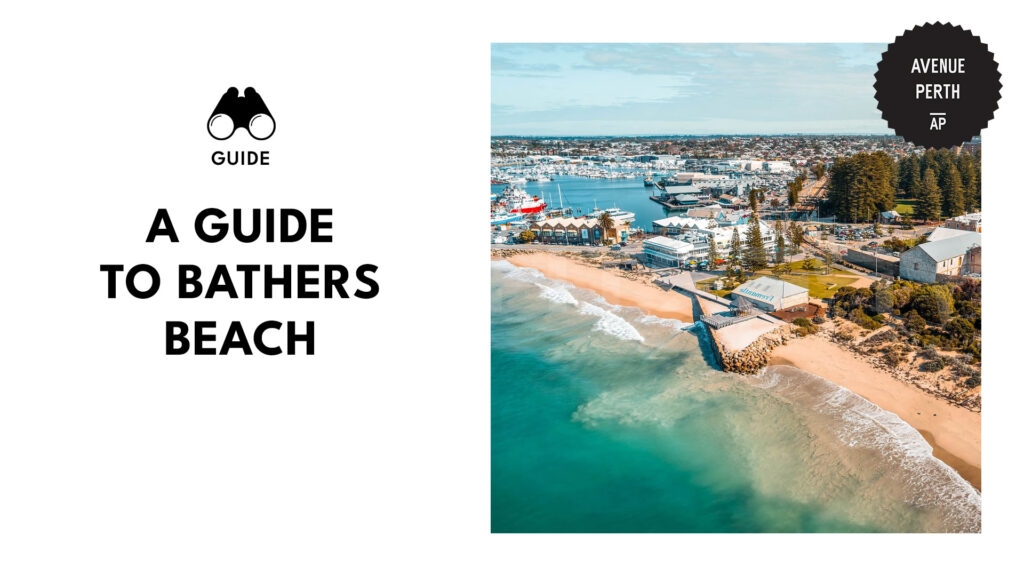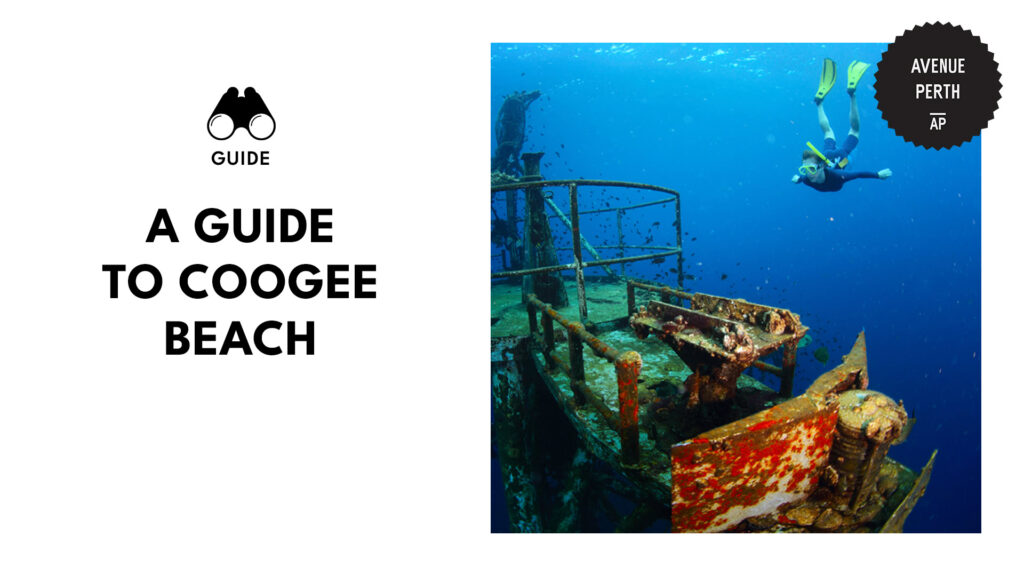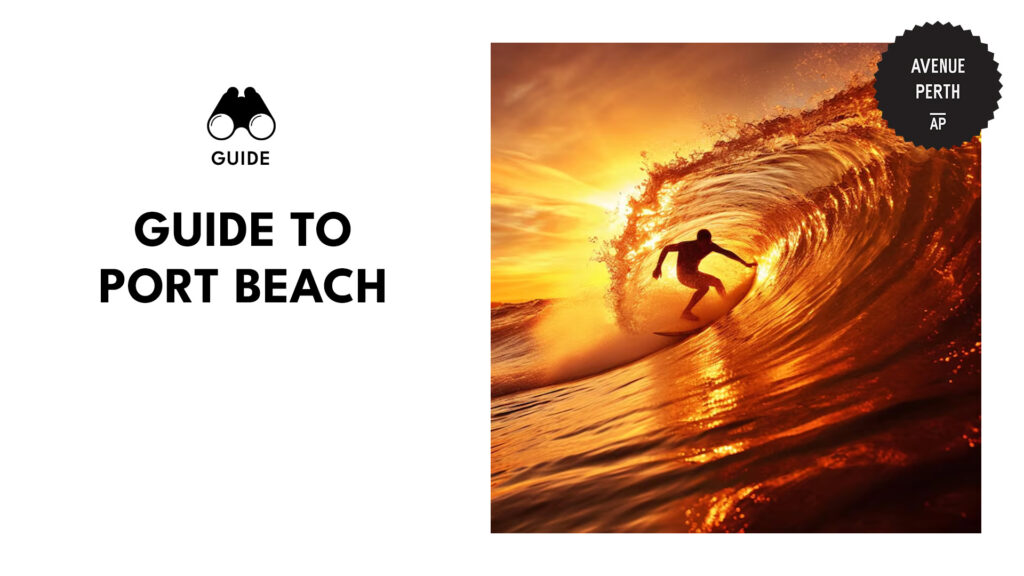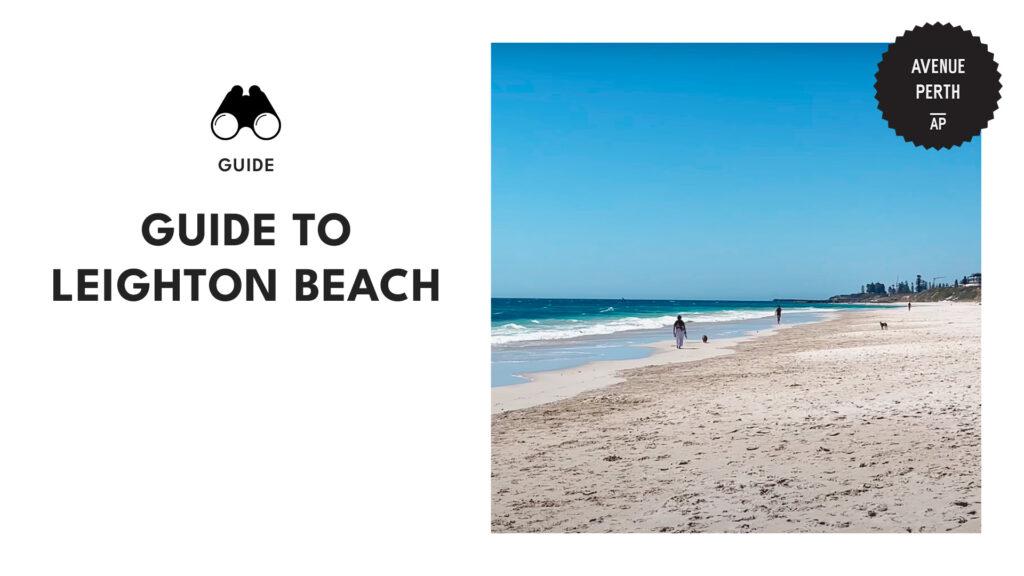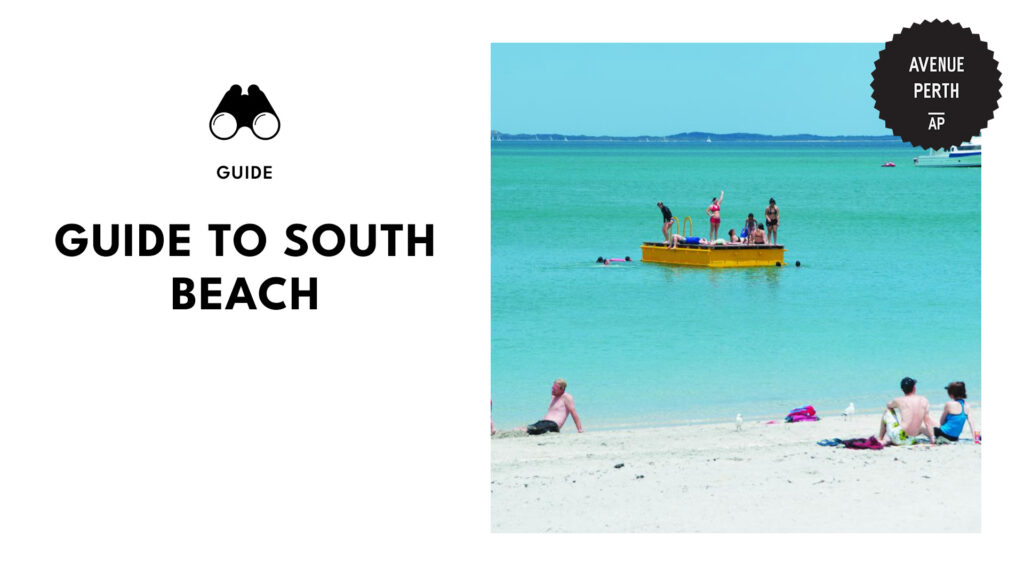Categories > Guides and Tips
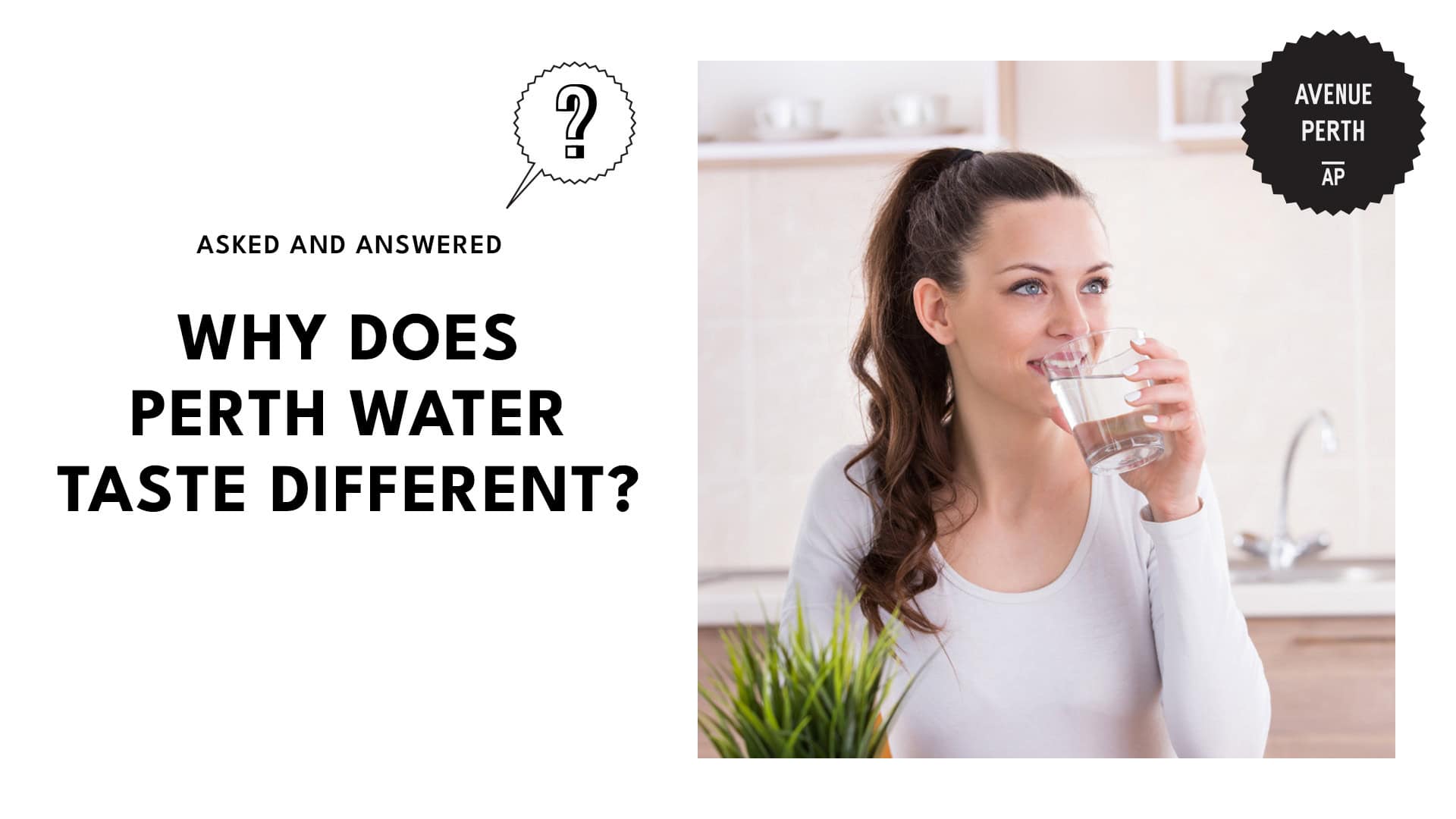
Why Does Perth Water Taste Different?
Do you ever wonder why the flavour or odour of your drinking water may occasionally change? An example of this sensation could be when the tap water you gargle at the dentist tastes a little different.
But what if you can experience a different water taste at home or after moving to Perth?
Reasons Water in Perth Tastes Different
Perth water may taste different for several reasons. This may be related to the groundwater supply, treatment process, hardness, salt or chlorine component, piping, and individual preferences.
But given these reasons, the Water Corporation states they conduct a thorough drinking water quality management programme for everyone’s safety and confidence. This ensures that the condition of the drinking water they supply is well-maintained.
For easy reference, we compiled some potential reasons or influences why the water in Perth may taste or smell different. Check them out below.
Groundwater Supply
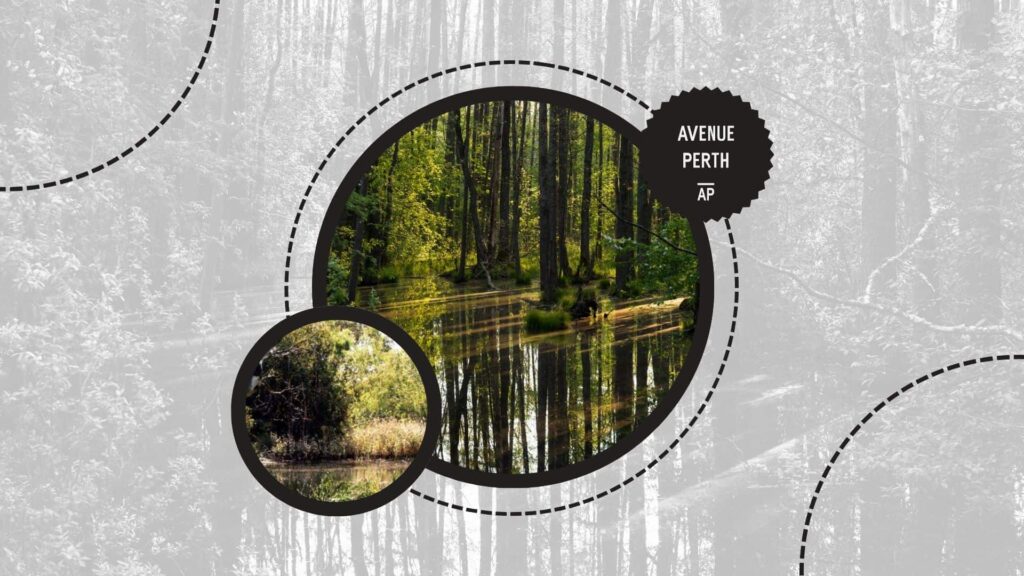
Photo source: www.watercorporation.com.au
Most of Perth’s water supply is groundwater, which is produced by rainfall that seeps into aquifers.
Groundwater is a naturally occurring source of water that’s usually high quality, is the least expensive source, and offers significant benefits. In Perth and Mandurah, groundwater supply provides about 70% of the water source.
This is then processed and utilised as drinking water. The supply can come from your kitchen tap, bathroom shower, or garden bore.
On top of that, the city’s local produce is also grown with this water. It’s used to irrigate gardens and open areas like Kings Park, as well as for industry and manufacturing.
More specifically, the Integrated Water Supply Scheme (IWSS), the largest project of the Water Corporation, provides water to Perth residents.
This programme provided 300 billion litres of water to the metropolitan Perth region from 4 primary sources:
| Water Source | Percentage |
| Desalinated Water | 45% |
| Surface Water Dams | 11% |
| Groundwater | 40% |
| Groundwater Replenishment | 4% |
13 surface water dams are available to the IWSS. No matter the weather, this assures that people living in Perth always have access to water.
The city continues to rely significantly on groundwater for its water supply. But, new groundwater sources, such as in the table above, are required due to the lower rainfall.
Water Corporation wants to source up to 57% of its water through desalination processes by 2030.
Additionally, the company strives to use less water in this project and rely more on recycled water. Plus, up to 20% of Perth’s water supply could come from recycled water by 2060.
Of course, recycling water may affect or influence the taste that several residents may notice.
At times, you may also notice a swampy smell caused by trace levels of Dimethyl Trisulphise (DMTS). This naturally occurring substance develops in the groundwater systems of Perth’s reticulation system.
Here’s what you can do about it: we suggest turning on an internal tap for 30 seconds to eliminate the swampy smell. Doing so helps remove stagnant water from the piping.
Don’t forget to save this water and utilise it to hydrate your garden or indoor plants too.
Treatment Process
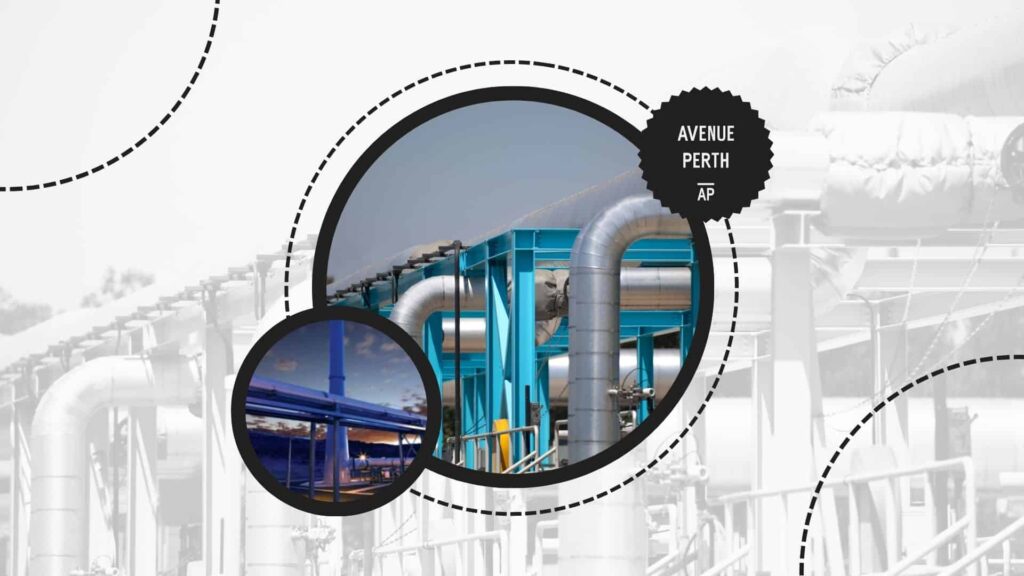
Photo source: www.watercorporation.com.au
Before you can safely drink your water, it has to be treated by your water provider. In a way, this may be similar to brewing beer or fermenting wine before they’re suitable for consumption.
The Water Corporation uses a fundamental treatment procedure to guarantee the safety of your Perth drinking water. This involves disinfection, fluoridation, water storage, and supplication.
Depending on the water source, the Water Corporation may use electrodialysis reversal, desalination, and ultra-filtration processes to cleanse your water.
However, you don’t need to worry about fluoride or other elements harming your health. All of these treatments are used at levels acceptable for consumption.
Overall Safety
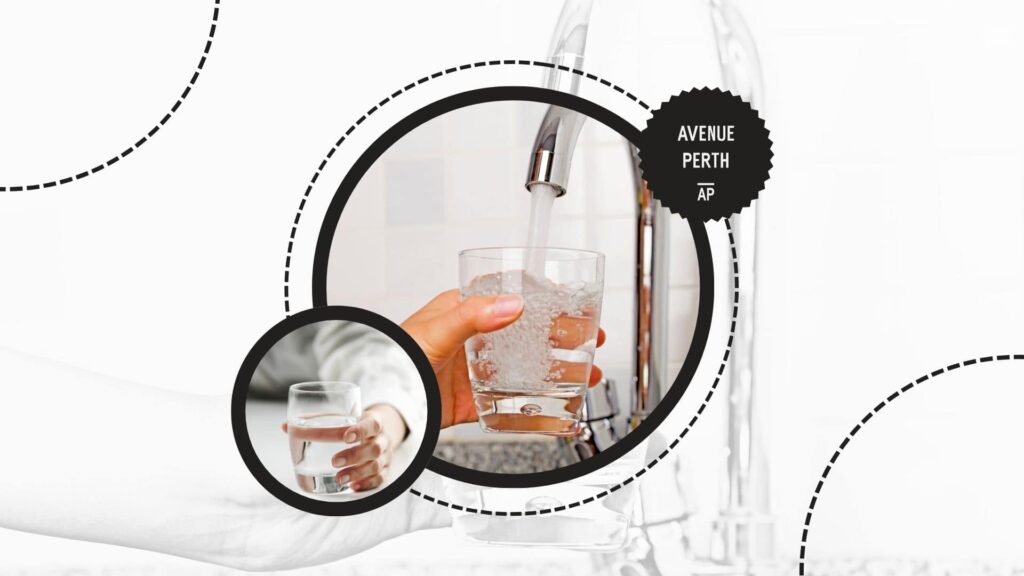
For clarity’s sake, drinking Perth’s tap water is generally safe.
To ensure Perth’s water quality is up to standards, the Water Corporation conducts intensive testing. They monitor to detect and address problems immediately.
Additionally, annual reports are accessible to the general public on the Water Corporation website. This would allow you to assess the quality of your water on your own.
Perth tap water passed the tests for thermotolerant (able to survive in high temperatures) Naegleria amoeba and E. coli bacteria in the Water Corporation’s 2020 to 2021 report.
Additionally, it complied with every chemical health standard the Department of Health set forth.
Given the size of Western Australia, it’s significantly more challenging for water authorities to manage aesthetic standards. Still, Perth satisfied 93% of the aesthetic analyses from 2020 to 2021.
Most of the time, the aesthetic standards advised limits that only had minimal impact on how the drinking water supply tasted.
Yet, it’s best to be prepared for any health-related emergency. Make sure to check your health or business insurance for the coverage you might need during unforeseen situations.
Hardness of Water
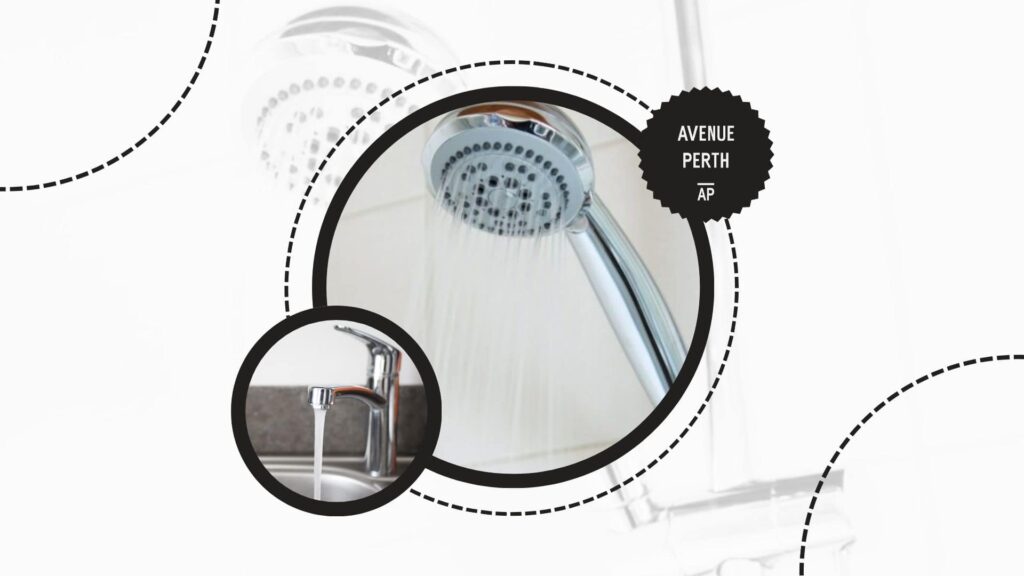
Water hardness is tested as part of water quality regulations. This is a measurement of the mineral content of your Perth water.
Mineral concentrations are classified as ‘soft’ when they are low and ‘hard’ when they are high. Milligrams per litre (mg/L) are used to measure it.
| Water Hardness | Milligrams per Litre (mg/L) |
| Soft | 60 mg/L |
| Moderately Hard | 60 to 120 mg/L |
| Hard | 120 to 200 mg/L |
| Very Hard | Higher than 200 mg/L |
Perth’s water hardness typically ranged from 28 to 240 mg/L on average. Most places lie in the desirable 60 to 200 mg/L range from 2020 to 2021.
Usually, you can’t determine if water is soft or hard by just looking at it. But hard water can sometimes be detected at home by feeling a film after washing your hands.
Soap scum is produced from the soap’s reaction with calcium. If the water is hard, you might need to cleanse your hands more thoroughly.
Moreover, in the dishwasher, spots on the glasses and cutlery may signify the hardness of the water used.
This may also be evident when clothes are removed from the washing machine and have mineral stains. Less water pressure in your home due to mineral deposits in the pipes may also lessen water flow.
As such, the purest kind of water is hard water. Whether drinking soft or hard water is healthier for us depends on who you ask.
Although not hazardous to our health, hard water has a few drawbacks.
This includes leaving a white, solid residue on your tapware, which demands the use of additional cleaning agents and more money. As a result, lathering soap is more complex, making tasks like dishwashing and taking a shower more challenging.
On clean dishes, watermarks and limescale buildup are also possible. Laundry that has just been washed may feel stiff from the limescale residue.
Most of all, hard water can generally have a bad flavour.
There are drawbacks to having water that’s overly soft as well, but this is uncommon. Due to their typical hard water supplies, very few regions in Perth failed to meet the demanding water requirement.
However, Perth water hardness levels can be lessened with a water softener. Some residents have this installed, though this may come with a considerable sum.
Sodium or Salt
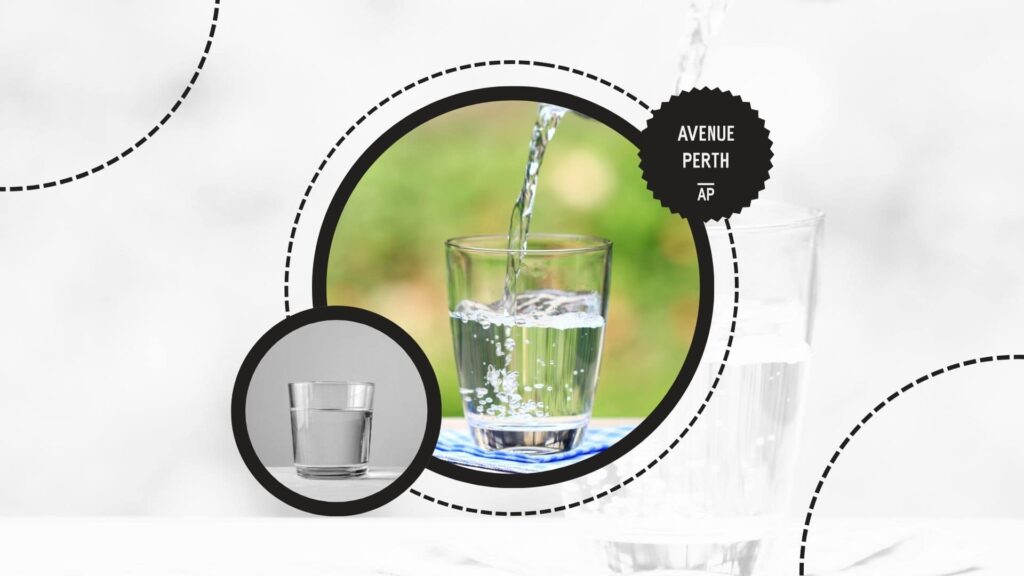
There’s one aesthetic feature that some find unsettling. Perth has several areas with Australia’s highest salinity levels, making the water taste salty.
One of the two elements that make up salt’s chemical composition is sodium. For people following a low-sodium diet, a maximum of 20mg/L of sodium per litre of water is advised.
According to the Water Corporation report for 2020 to 2021, the average sodium concentration in Perth districts ranged from 24.0 to 122.8mg/L.
If you consume at least 1 litre of water each day, your daily water intake alone might be up to 6 times the amount advised for low-sodium diets.
Australians tend to use too much salt, and the majority of it comes from processed foods. This is clearly a problem for individuals who must follow a low-sodium diet.
Your water can have a more significant impact than you thought for folks who live in a region with high sodium levels.
In the end, you have some control over the quality of your drinking water, even though you have no control over the quality of your water supplies.
Plastic Pipes
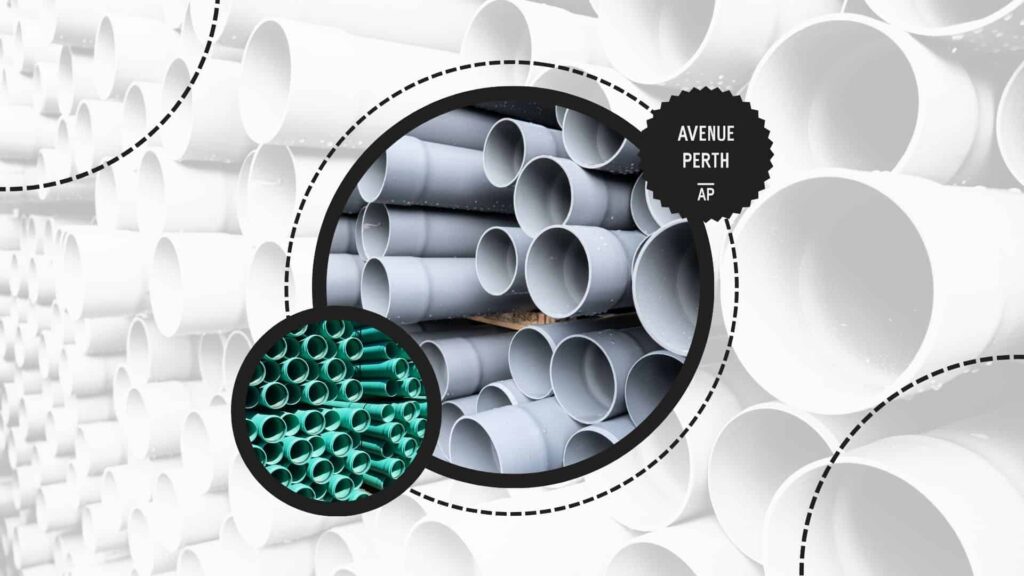
Numerous old and new households use plastic water pipes in Perth. A plastic taste may result from the reaction of natural organic compounds with chlorine.
To avoid this, we advise using a stainless steel kettle for boiling fresh water or letting the water sit in the sun – make sure it’s in a covered glass container for 2 hours.
You may also add freshly squeezed lemon juice before boiling if your water still tastes plastic afterwards.
Moreover, you could run the tap for 30 seconds to flush water from the pipes if you live in a new home with plastic pipes. This wastewater can still be recycled, so it helps to be resourceful.
Another trigger for the plastic taste is if a petroleum-based hydrocarbon product is spilt or sprayed on the ground. This is when it’s especially near domestic plastic pipes that have been buried.
As a result, the taste and smell of gasoline or kerosene will get stronger in the internal household water supply. It’s best to call an emergency plumber in Perth if you notice this odour.
Metal Pipes
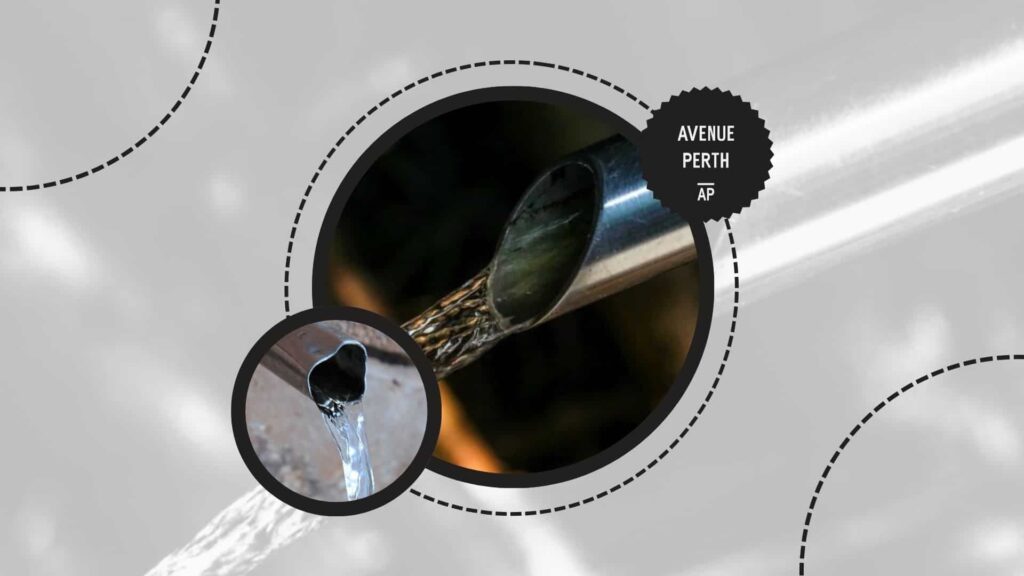
A bunch of older homes were also built using metal pipes.
Over time, these have the propensity to succumb to corrosion. The pressure causes the walls to deteriorate and crack.
Some use rust-resistant copper or PVC pipes to construct new homes and avoid getting water to taste metallic.
Certain chemicals must be added to tap water by the suppliers for it to be safe to drink. Several examples of these compounds include aluminium sulphate, calcium hydroxide, fluorosilicic acid, liquified chlorine, and sodium silicofluoride.
Additionally, pollutants like nitrates, hormones, pesticides, and different metal salts may be present in tap water. Because it always has some chemicals or bacteria, the water you drink at home is never truly pure.
Since the chemical in the water reacts with the metal which plumbers use in plumbing systems, water sources with high chlorine levels may taste metallic.
Tap water may taste bitter as a result of this.
Chlorine
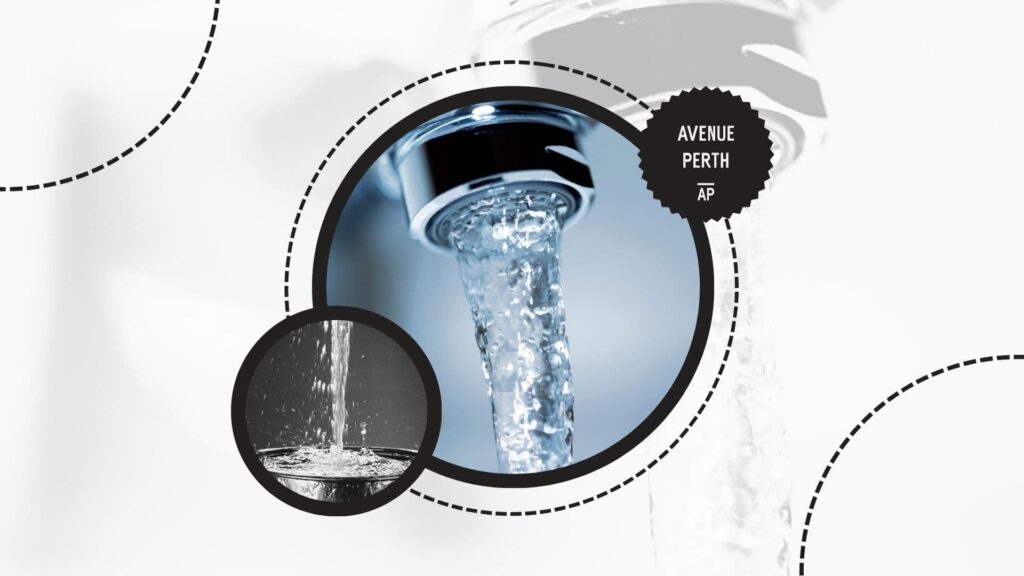
Although adding chlorine to the water supply is safe, some people may be more sensitive to its taste and odour.
Generally speaking, your health isn’t in danger if your water tastes metallic. However, if your plumbing is older and has lead pipes, your water supply may include harmful substances too.
Up to 1970, lead plumbing was frequently found in older homes. Lead pipes might be present if your home was constructed or remodelled before this.
If you’re doubtful of the quality of your water supply, reach out to your local water supplier to know the findings of water testing in your area.
Individual Taste
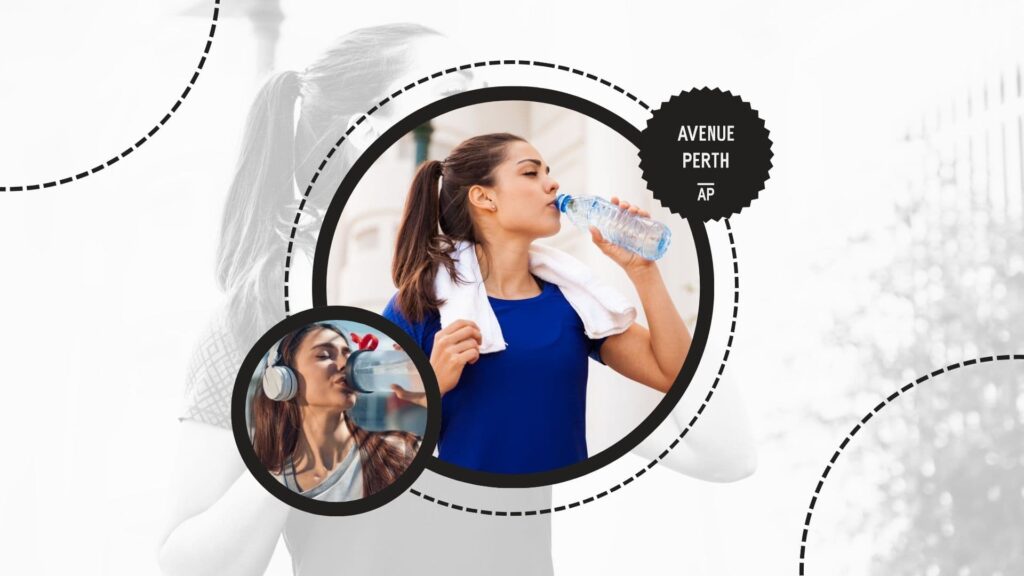
Certainly, your preferences ultimately determine the taste of your tap water. But there are a few elements that contribute to its flavour.
Water picks up a range of items from the treatment facility to you, giving it a unique taste. This flavour can alter over time and between different locations due to various variables.
The water may contain minerals, salts, metals, and many others.
Poorly-rated tap water contains larger amounts of sodium, potassium, and chloride ions. On the other hand, highly rated water has comparatively high concentrations of bicarbonate, sulphate, calcium, and magnesium ions, along with a higher pH.
The sour taste receptor cells on your tongue are activated by water. Consequently, water with a high mineral content typically tastes bad.
Altogether, many factors contribute to the flavour of your Perth water. Yet, two people who drink the same water may have different experiences even when the water is ultimately safe.
And there you go! Stay hydrated, and we hope you find this information about Perth water valuable.




